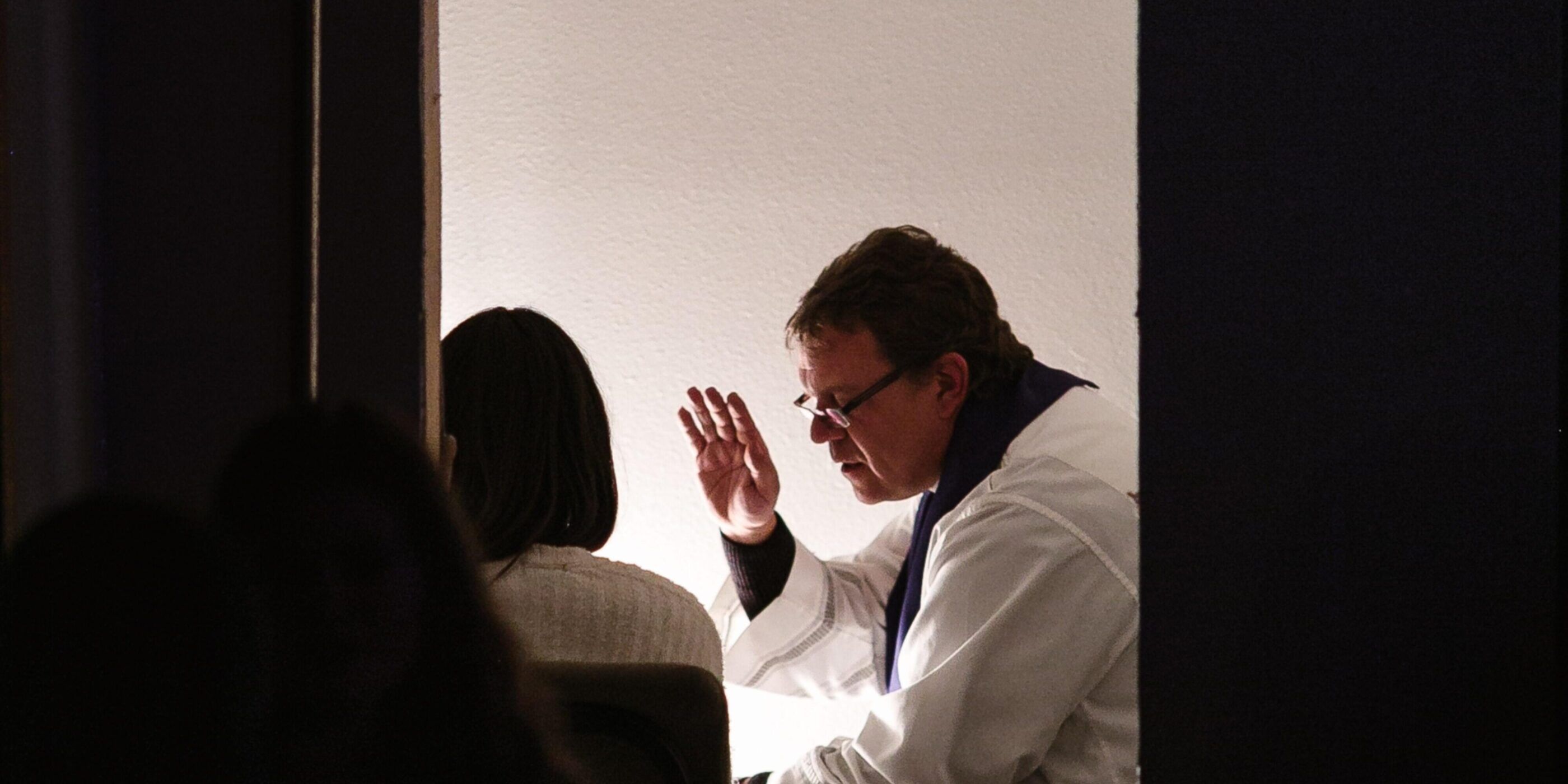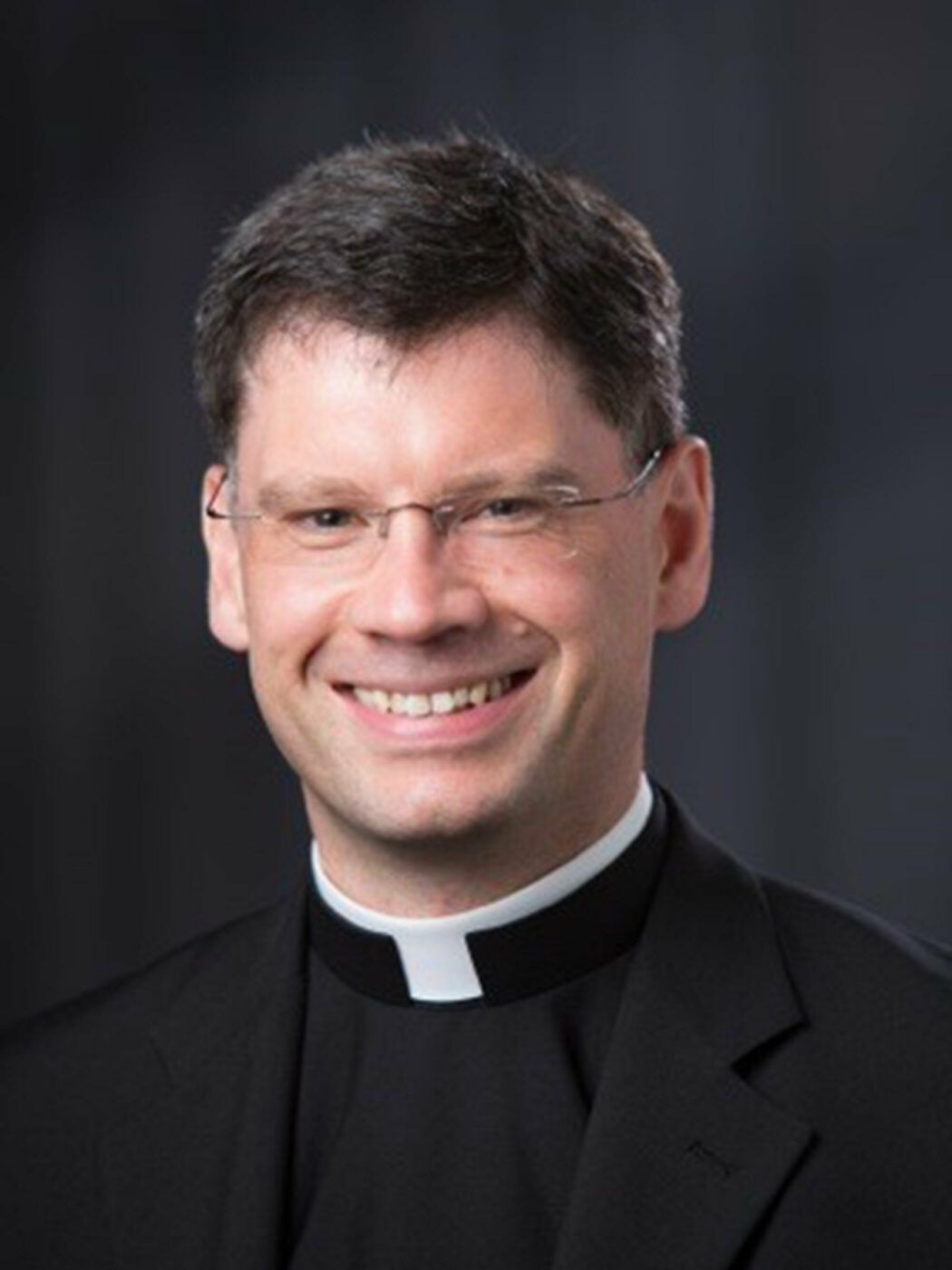“I will never forgive you.” These are chilling words. Spoken by someone who suffered greatly at the hands of an institution, they carried the burden of immense pain and justifiable anger. Still, the words were utterly chilling. They conveyed a sense of hopelessness at that moment, a sense of bleakness and darkness. To stay there is to stay a prisoner. May we never utter or hear such words.
To live in heaven, we have to learn to love as God loves (John 13:34). This includes forgiveness. What sometimes seems impossible is given to us as a gracious gift—for the love of God “has been poured into our hearts by the Holy Spirit” (Rom 5:5). We can learn to love with his love for he gives it to us to make it our own.
This love of God—divine charity—softens the heart to let go of hard things, to release whatever malice is tightly grasped. “Wrath and anger are hateful things, yet the sinner hugs them tight” (today’s first reading from Sirach).
Sometimes forgiveness is experienced as a powerful grace. Assunta Goretti forgave Alessandro Serenelli, the youth who killed her daughter, Saint Maria Goretti, in 1902. After 27 years in prison, he asked her forgiveness which was willingly given. They knelt together at the altar rail to receive Holy Communion. Forgiveness transformed Alessandro, who afterwards led a life of holiness and virtue. He died in 1970. Nothing is impossible to God.
Since the time Christ forgave those who crucified him, from Saint Stephen who asked forgiveness for his slayers, many have witnessed to the forgiveness that sets free: the father in Northern Ireland who forgave the bombers who killed his son; the impoverished mother who forgave the gang members who viciously attacked her son on the streets of a major US city. They forgave for Christ’s sake because he asks, and he helps us to forgive. They did this also because they knew that the forgiveness of God is the only response to evil—the only response that can bring healing and peace.
The only response to evil is the forgiveness of God. Sometimes it comes as an immediate grace. More often, it must be renewed again and again since the human heart easily hardens again and again. Seventy-seven times, our Lord says we should forgive. Often, we need to forgive seventy-seven times, not for seventy-seven different offences, but seventy-seven times for that one offence that wounded so deeply and still surges up from deep within when triggered. Seventy-seven times it must be surrendered again to the Lord. The Lord of forgiveness will not withhold the grace to forgive from those who desire and strive for it, even when difficult—even when seemingly impossible. For God, all things are possible. Including forgiveness. Especially forgiveness.
“Should you not have pity on your fellow servant?” is how Christ puts it in today’s Gospel. Try to forgive “your brother from your heart.” Release him and release yourself in forgiveness. “Mercy wishes you to be merciful . . . that the image of God be reflected in the mirror of the human heart” (Saint Leo the Great).

The streams of grace and forgiveness are in the world through the blood of Christ. However difficult it is, we don’t want to block those streams for others or for ourselves. In the Sacrament of Reconciliation, above all, we learn the mercy of God and so learn to be people of mercy. Confession “is a school of compassion that teaches penitents how to live out God’s compassionate mercy in the world” (Program of Priestly Formation § 229.b). The men of Saint John’s Seminary learn to be men of mercy in order to become effective ministers of Divine Mercy. Mercy wishes us to be merciful.


